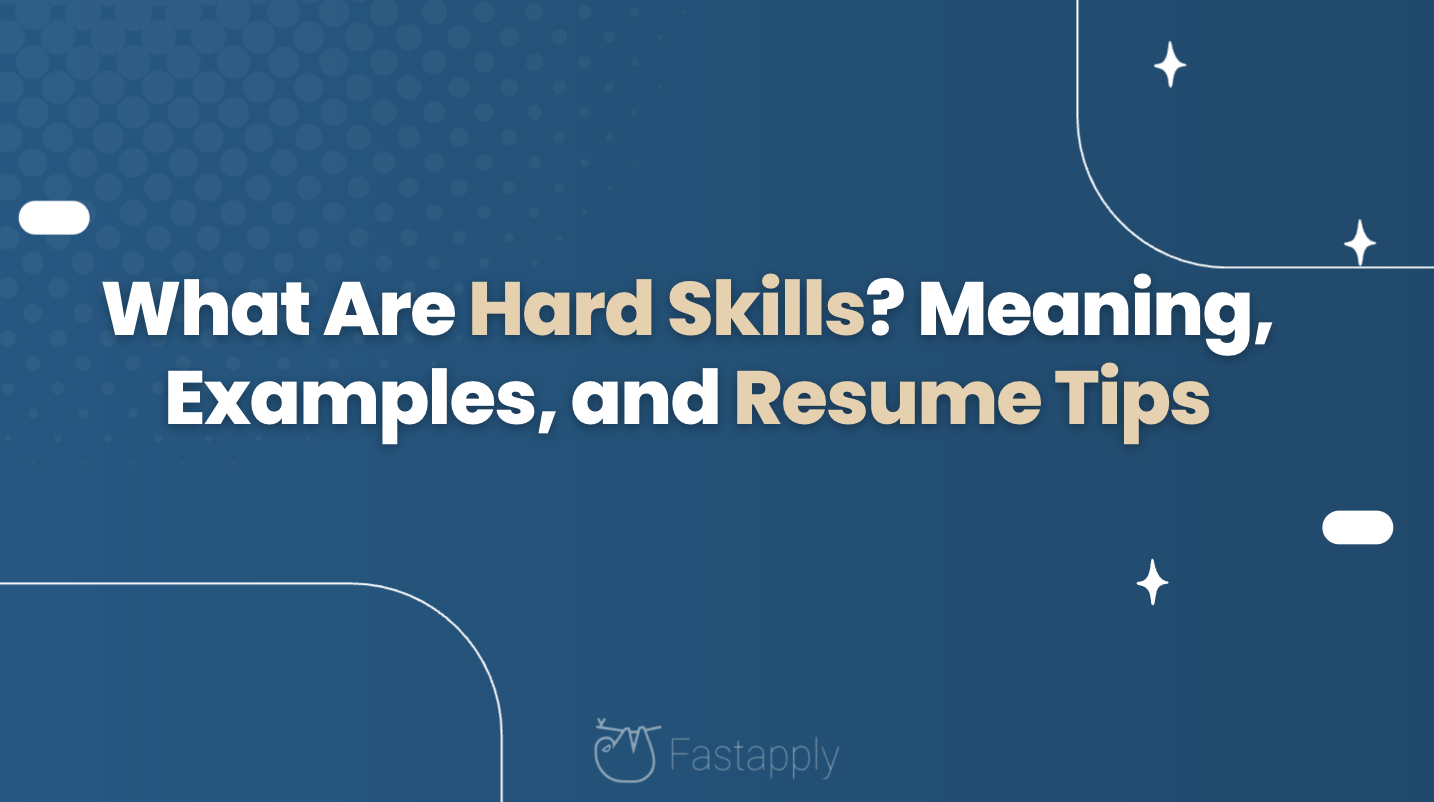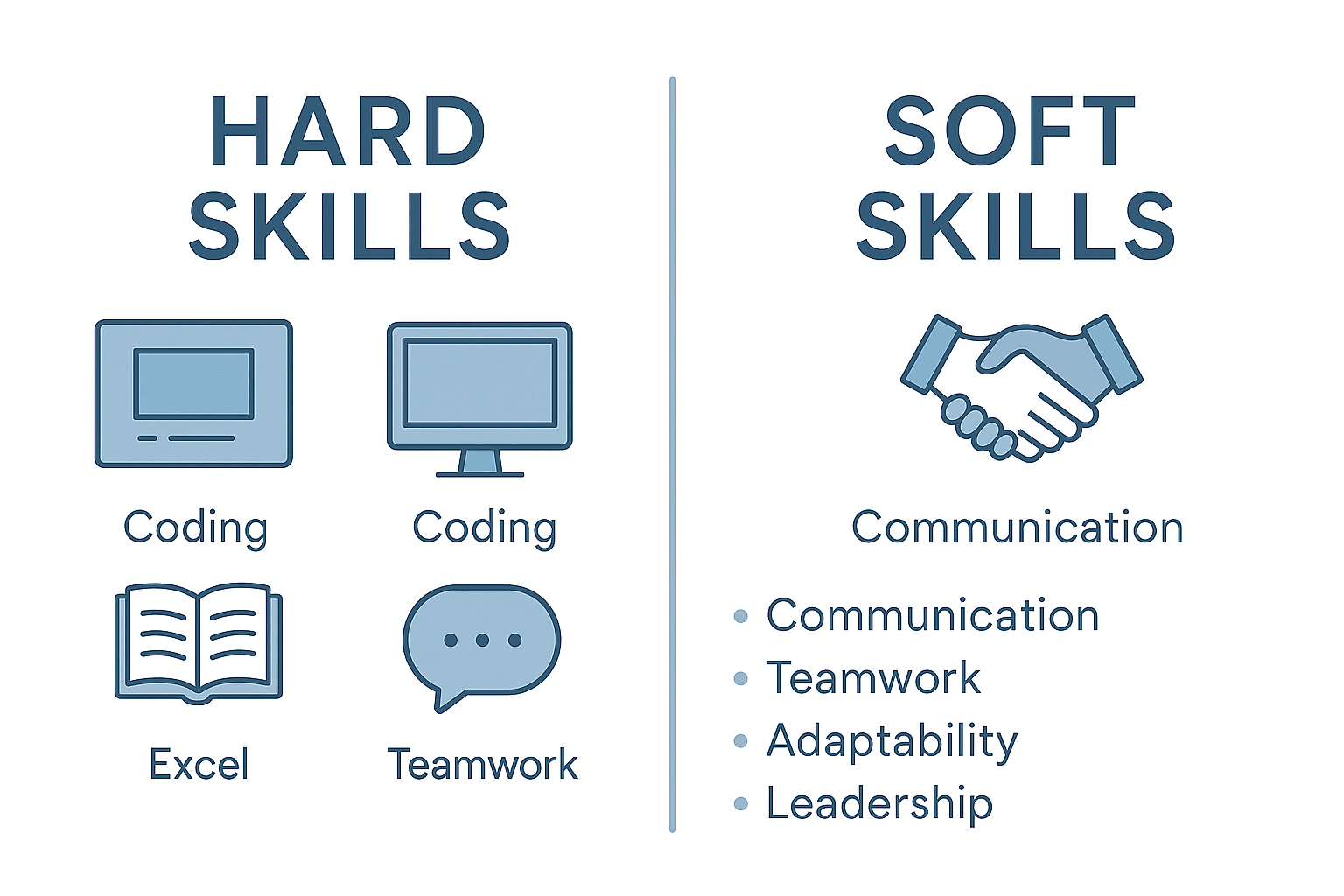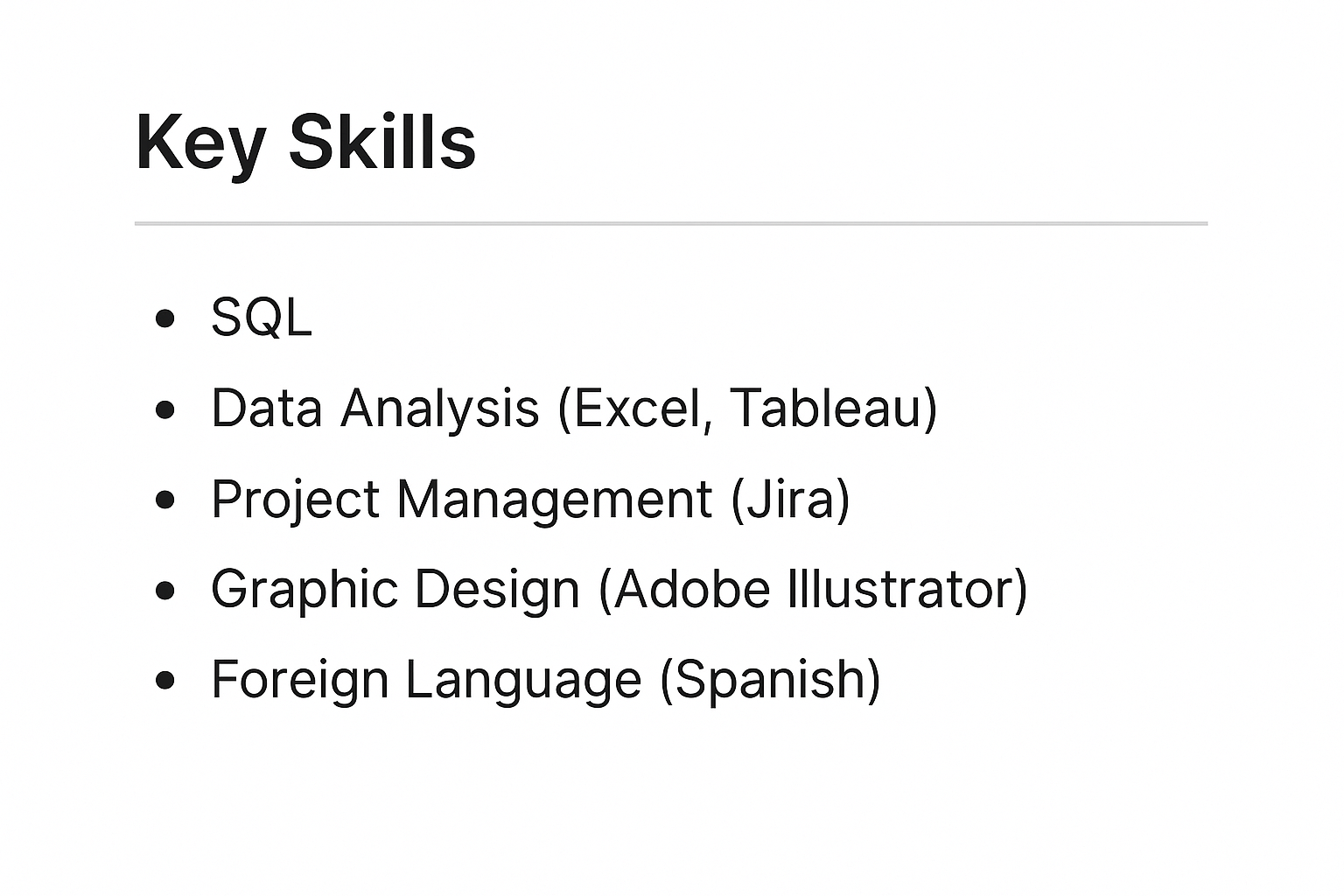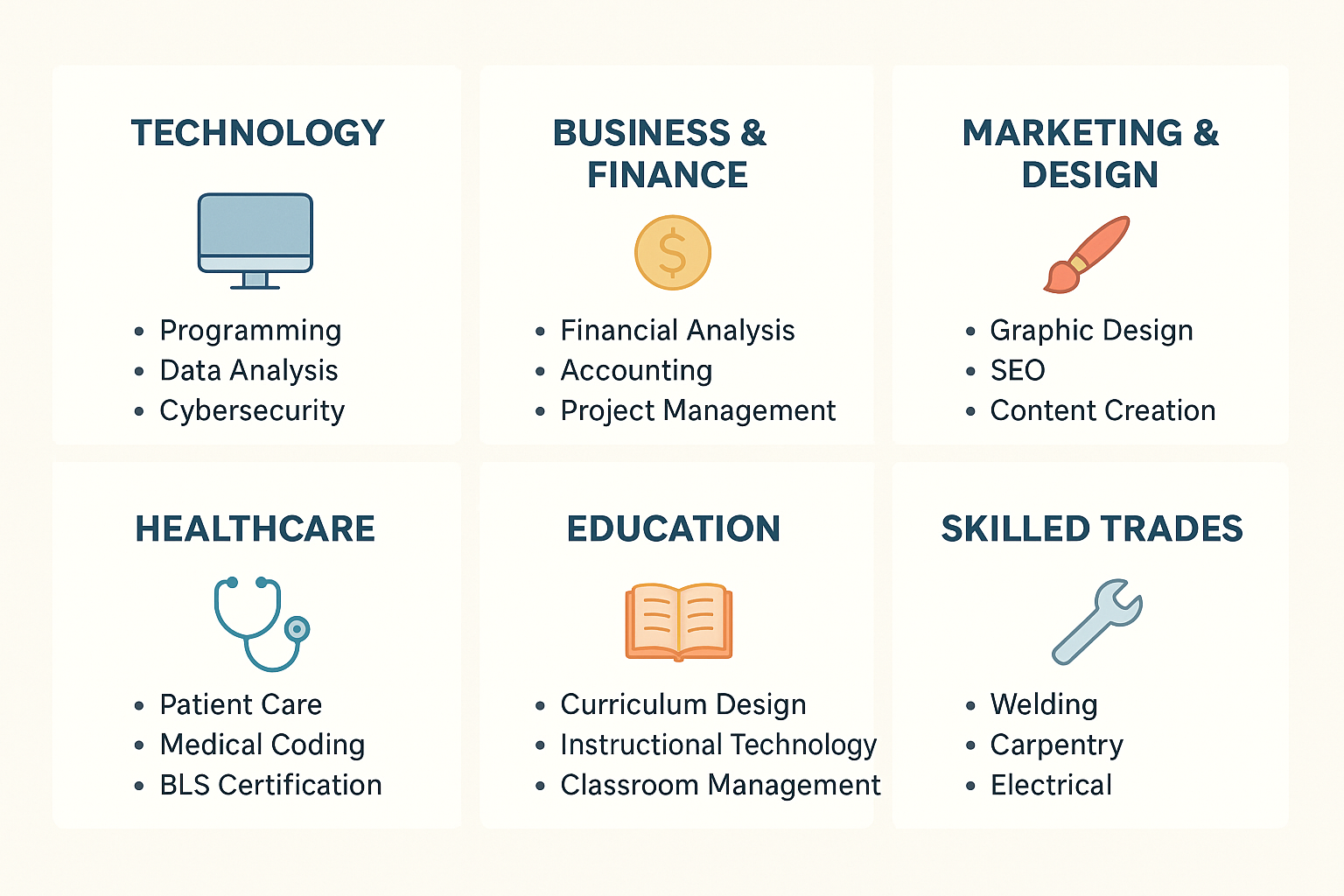What Are Hard Skills? Meaning, Examples, and Resume Tips

When employers scan resumes, they look for proof of ability. They want to see skills that can be measured, tested, and applied right away. These are called hard skills.
Hard skills differ from soft skills. Soft skills are traits like communication, teamwork, or adaptability. Hard skills are concrete. You learn them through training, education, or experience. They are often tied to tools, technologies, or processes.
If you want to stand out, you need to show the right hard skills on your resume. Let’s break down what they are, examples from different fields, and how to present them for maximum impact.
What are hard skills
Hard skills are specific, teachable abilities that you can quantify. They often require certifications, courses, or practice to master. As TechTarget explains, they’re measurable and job-specific, unlike soft skills which are harder to test.
Examples:
- Programming in Python
- Data analysis with Excel or SQL
- Graphic design with Adobe Illustrator
- Foreign language fluency
- Project management with Jira
- Accounting and financial modeling
Employers value hard skills because they predict immediate contribution. They know what you can do, not just how you work.

Examples of hard skills by industry
Technology
- Programming languages (Python, Java, JavaScript, C++)
- Database management (SQL, MongoDB)
- Cloud computing (AWS, Azure, Google Cloud)
- Cybersecurity tools (Firewalls, SIEM)
Business and finance
- Financial forecasting
- Accounting software (QuickBooks, SAP)
- Data analysis (Excel, Power BI, Tableau)
- Business intelligence reporting
Marketing and design
- SEO and SEM
- Social media management
- Graphic design (Adobe Photoshop, Illustrator)
- Video editing (Final Cut Pro, Premiere Pro)
Healthcare
- Patient care procedures
- Electronic health record systems (Epic, Cerner)
- Medical coding (ICD-10, CPT)
- Lab testing protocols
Education
- Curriculum planning
- Learning management systems (Canvas, Blackboard)
- Classroom technology (Google Classroom, Zoom)
- Language instruction
Skilled trades
- Welding
- Electrical systems
- Plumbing installation
- CNC machine operation
Hard skills are everywhere. The key is identifying which matter for the jobs you want.

Why hard skills matter in hiring
Recruiters use Applicant Tracking Systems (ATS) to filter resumes. These systems scan for keywords. If your resume lacks the right hard skills, you may get filtered out.
Even after the ATS stage, hiring managers look for specific abilities. They want proof you meet the technical requirements of the role. That is why hard skills often appear first in job descriptions.
As WalkMe notes, hard skills directly impact productivity, accuracy, and efficiency—key reasons employers emphasize them.
Hard skills get you in the door. Soft skills help you keep the job. You need both, but you cannot skip hard skills when applying.
Resume tips for hard skills
How you present hard skills makes a difference. Here are practical tips:
- Match job descriptions: Read postings carefully. If a job requires “SQL,” list SQL specifically. Avoid vague language.
- Create a skills section: Place key hard skills in a dedicated section near the top of your resume.
- Show application in experience: Don’t just list “Excel.” Show how you used Excel to analyze data or improve reporting.
- Include certifications: List official credentials that prove your expertise.
- Keep it updated: Remove outdated skills. Focus on current, in-demand tools and processes.
ResumeGenius suggests weaving skills into achievement-driven bullet points and tailoring them to each job application. For more strategies, check out our post on How AI Is Reshaping Tech Hiring and Why Your Resume Must Adapt.

FastApply and hard skills
Listing hard skills is not enough. You also need to tailor them for every role. Employers and ATS systems look for exact keyword matches. That means editing your resume again and again.
FastApply automates this process. It scans job descriptions, matches required hard skills, and adjusts your resume to fit. It highlights the right skills for each application.
Instead of wasting time rewriting, you apply to more roles with resumes that look specific, not generic. That increases your chances of passing ATS filters and catching recruiter attention.
Curious about automation and career growth? Read our guide: Building a Successful Career in 2025: How Auto-Apply AI Can Help.
Conclusion
Hard skills are measurable abilities that prove you can do the work. They differ from soft skills by being concrete, teachable, and easy to test. Employers value them because they show immediate impact.
To land interviews, you need to identify the right hard skills for your industry and show them clearly on your resume. Pair them with real examples and certifications.
With FastApply, you don’t waste hours editing. It tailors your resume automatically, matches hard skills to job descriptions, and helps you stand out faster.
Hard skills open the door. FastApply helps you walk through it.
P.S. If you’re balancing job applications with upskilling, here’s a must-read: How To Find Jobs And Upskill Without Burning Out.
#Hard Skills
#Resume Tips

FastApply Team
Career Experts
